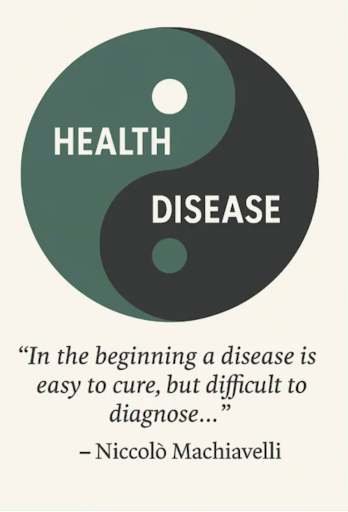Latest HRT Study Needs a Critical Eye
- laurenlin8
- Apr 3, 2012
- 4 min read
Updated: Mar 5, 2024
Here's the latest entry in the decade-long debate over the benefits and risks of hormone replacement therapy in post-menopausal women: A report from Boston that says women who take hormones for more than 10 years have a higher long-term risk for breast cancer. But as with most of the HRT studies that have come before and those that will follow, it’s important for women to look beneath the numbers, to put the study in the larger context of their overall health and longevity—their healthspan—and to consider their own menopause symptoms before coming to conclusions about what this latest study means to them, if anything. That’s especially so because the study is getting attention in the media before it’s been published. Its author, Dr. Wendy Chen of Brigham and Women’s Hospital and the Dana-Farber Cancer Institute, is reporting her findings at the annual meeting of the American Association for Cancer Research this week in Chicago. But until her research is elevated to peer-reviewed publication, there is a lot we can’t know—important things like whether a deeper analysis of the data would tip the balance in favor of benefit over risk. That the jury’s still out is the cliché often quoted in these stories, but in this case it’s more like a jury deciding guilt or innocence based on the prosecutor’s opening statement. Dr. Chen's study is based on data collected from 1980 to 2008 by the Nurse’s Health Study, a long-running research initiative backed by the National Institutes of Health that uses nurses as volunteer subjects. The women in Dr. Chen’s study were between 34 and 59 at the beginning of the 28-year data period. She broke down her analysis by type of HRT—estrogen plus progestin, or estrogen alone—and length of therapy. Dr. Chen says the data suggest that hormone therapy is safe if taken for less than 10 years but carries increased risk of breast cancer after 10 years of use. For instance, she reports that the women who took combination HRT for 10 to 14.9 years had an 88 percent higher rate of breast cancer than those who took no hormones. Estrogen only for that length of time carried a 22 percent higher risk, she reports. At the same time, though, Dr. Chen found that women did not have a greater chance of dying from breast cancer, regardless of their HRT regimens or how long they were on them. I have a lot of questions, and so should anyone reading about this study. Here’s a big one: Dr. Chen found no link between HRT and a higher risk of death from breast cancer. That’s good, of course. But what we don’t know from this study is whether the data bear news that’s even better: that HRT actually helps protect women from other diseases that lead to premature death, as other studies have suggested. Missing from the report is what the overall mortality rate of the HRT group was compared with the non-HRT group. Did women who didn’t take hormones have a higher rate of death from cardiovascular disease, Alzheimer's or complications of diabetes or osteoporosis? The nurses were followed for nearly 30 years, so many of them have reached their 80s. At this late stage of life, the incidence of cardiovascular disease and Alzheimer’s, and death from those diseases, is considerably higher than that of breast cancer. What effect might long-term HRT—either combination or estrogen alone—have had on the incidence of these diseases? Very important question. And, as always, beware statistics. An 88 percent higher risk sounds frightening, but maybe not if the baseline incidence is infinitesimal. An increase from 1 in 100,000 to 2 in 100,000 is a 100 percent increase. Finally, there is the study’s use of progestin, which is the synthetic version of the molecule progesterone that occurs naturally in women’s bodies before menopause. There is compelling data from a similar cohort of women in France showing that when women use the real thing, progesterone in combination with estradiol, they have no increased risk of breast cancer over non-users of HRT. In fact, besides being safe and effective in tempering the symptoms of menopause, there is hope that HRT is highly beneficial in staving off the diseases of aging. Two major controlled trials (KEEPS and ELITE) are due to report in the next year or two their findings on the effect of HRT on precursors of cardiovascular disease and dementia in menopausal women. Their results will add greatly to our understanding of the plus side of the equation and which forms of HRT are most beneficial. So it’s all about context, or, in the case of the latest study, the lack of it. Presenting incomplete data on breast cancer alone and drawing conclusions about whether HRT should be used long-term without addressing the other more important killers of older women only leads to misinformation and confusion—and we’ve had more than enough of that since the misreporting of data from the Women’s Health Initiative study in 2002 caused millions of women to stop or never start hormone therapy. Dr. Chen was quoted as saying that “for combination therapy there is so much data about the dangers.” She advised women to reject hormone therapy and just put up with menopause as best they can. “If they must take it”—if the symptoms are unbearable—they should take hormones for “a year or two at most.” Considering the thinness of the data she reported, that’s a pretty narrow and unduly simplistic takeaway message. The decision to take any medication for a long time requires carefully weighing the risks and benefits it may have for all the diseases and symptoms it can impact. I hope no woman makes a decision to stop or not start HRT based on this incomplete report.




Comments